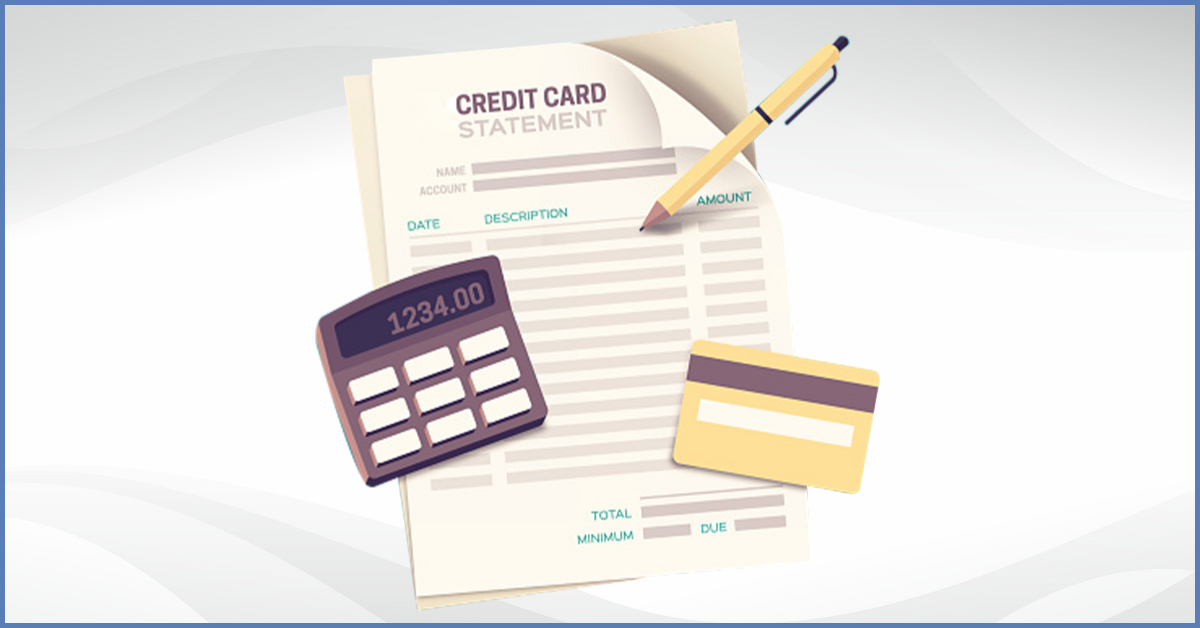If you have been using a credit card for a long time, you would surely be aware of what a credit card statement is. It is a document that contains all the information about your transactions done within a billing cycle, all the fees and charges that are applicable to these transactions, and your total credit card bill that needs to be paid. Many people don’t understand the importance of these statements and they just throw/delete them without even checking them once. Credit card statements are sent to the cardholders every month after a billing cycle ends and it is not supposed to be just thrown or deleted. It is an important financial document that needs to be checked by every user thoroughly. However, you don’t need to keep these statements with you always, but you should keep them for a certain period of time. Have you ever wondered how long should you keep your credit card statements?

You generally don’t need to keep a credit card statement with you for too long. Once you receive your credit card statement, you should check for any inaccuracies and you can delete them after clearing your credit card dues or after getting the disputes resolved (if there are any). However, there are some particular cases when you might need to keep your statements even for years. We will make you understand the same in this article:
Why are credit card statements important?
Many credit cardholders are not aware of the importance of their credit card statements and they often ignore the emails sent by their card issuers regarding their monthly statements. But, every cardholder needs to understand it is very important to go through this document at least once each month. The following points will make you understand why credit card statements are so important:
- Helps you budget your spending – Credit cards due to their buy now pay later feature make it incredibly easy for people to make impulse purchases. Even small amounts can add up and create a big balance soon. Checking your credit card statement every month gives you a bigger picture of where you need to reduce your spending.
Also Read: 9 Things You Must Look For In Your Credit Card Statement
- Remove unwanted subscriptions – Sometimes people keep on paying for subscriptions that they no longer use, usually because of auto-pay. Another case is when someone has signed up for the free trial period and forgot to unsubscribe, they can end up increasing their credit card balance. Looking at your credit card statements closely will help you remove these unwanted subscriptions.
- Spot billing errors – Sometimes you can be charged twice for a particular payment due to a mistake or there might be some calculation mistakes in your credit card bill. These errors will never be identified if you don’t check the statement properly and you will keep paying for unnecessary things. Hence, it is essential to go through the statement to cross-check all transactions.
When should I keep my credit card statements for longer than 60 days?
Usually, you need to keep your credit card statement until the payment has been processed but there are some exceptions where you might need to keep it longer:
- If you purchased a product through your credit card that is covered under the purchase protection offered by your card issuer, you should keep the statement for as long as the protection is valid. Some cards also offer to pay for repair or replacement on purchases made if something goes wrong within a certain period (usually lasts from 60-90 days).
- If you purchased a product on which your credit card offers an extended warranty, keep the physical statements for that warrentyperiod. Since some warranties could last for a year or two, your archived online credit card statements might not go back that far, hence keep the statement along with the record of purchase until the warranty expires.
- If you want to file a dispute on a charge that appeared in your statement, keep the statement at least until the dispute is resolved and the amount has been credited back to your account.
- You should also keep your credit card statements if they relate to tax transactions. If you made a business expense or any other tax-deductible expense on your credit card, keep the credit card statement and other associated receipts. Keep these statements with you along with other tax records and hold on to them for a minimum of 6 years.
How should I dispose of the statements properly?
Once you’ve passed the date after which the purpose of keeping your statement has been completed i.e, you’ve paid your bills and solved any related disputes, it becomes important to dispose of the statements properly. Since these statements have a lot of personal and financial information mentioned on them like your account number, name, address, and transaction details, they can easily result in fraud if goes into the hands of the wrong person.
To dispose of your credit card statements in the right manner, use a micro shredder. Although a normal office shredder would work well, using a micro shredder removes any doubt of someone finding your information. Another method to dispose of your statements securely is to incinerate them. Although this method is slightly harmful to the environment, one can be completely sure that their information cannot be found or accessed by anyone else.
The Bottom Line
Holding on to credit card statements for a long time can be overwhelming for some people but it is important to review your financial statements and organize them in a separate folder if they are required for a longer period. Keeping your credit card statements can help you resolve disputes, are used in tax deductions, and enable you to stay clear of any financial troubles. Make sure to dispose of the statements properly once they are no longer needed.









